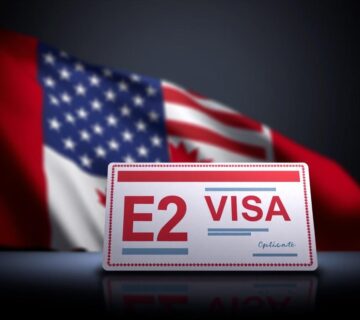Table of Contents
Express Entry Registration Process
The Express Entry system is an online immigration management program operated by Immigration, Refugees and Citizenship Canada (IRCC). Registration is a multi-step process that requires careful preparation.
The first step is to create an online profile on the official IRCC website. Applicants must provide information such as age, education, work experience, and language proficiency. Applicants also upload their language test results (e.g., IELTS or CELPIP) and their Educational Credential Assessment (ECA).
Once the profile is complete, it is assessed and entered into the Express Entry pool. A Comprehensive Ranking System (CRS) score is assigned, and applicants are ranked against others in the pool.
If an applicant’s CRS score meets or exceeds the minimum cut-off in a draw, they may receive an Invitation to Apply (ITA). This allows submission of a permanent residency application, which must usually be filed within 60 days. Accuracy and completeness at this stage are essential, as errors may lead to refusal.
Required Documentation
Applicants must provide accurate and up-to-date documents, including:
- Identification: Valid passport.
- Language proficiency: Approved test results (IELTS, CELPIP, TEF, or TCF).
- Education: Certificates, diplomas, and an ECA verifying Canadian equivalency.
- Work experience: Employer letters with job title, responsibilities, and dates.
- Proof of funds: Bank statements or financial records (unless exempt).
- Medical exam: From an IRCC-approved physician.
- Police clearance: Criminal background checks from relevant jurisdictions.
- Other documents (if applicable): Marriage/divorce certificates, children’s birth certificates, or job offer letters.

Timing and Costs
Processing times vary depending on applicant circumstances and government resources. While many complete applications are processed within six months, timelines may be longer.
Approximate costs include:
- Language tests: $250–$300 USD.
- ECA: $200–$300 CAD.
- Application fees: $1,365 CAD per adult, $230 CAD per child.
- Medical exams: $200–$300 CAD.
- Police certificates: $50–$100 USD per certificate.
- Proof of funds: must meet government-set minimums.
Applicants may also incur costs for translations and travel.
Strategies to Improve CRS Scores
Applicants seeking to improve their CRS ranking may consider:
- Language proficiency: Higher scores in English or French can increase CRS points.
- Education: Completing higher-level degrees or obtaining an ECA.
- Job offers: A valid Canadian job offer may provide additional CRS points.
- Work experience: Additional years of skilled experience may strengthen eligibility.
- Bilingual ability: Proficiency in both English and French can increase points.
- Provincial Nominee Programs (PNPs): A provincial nomination adds 600 CRS points.
- Spousal factors: A spouse’s language skills and education may also contribute.
Advantages and Considerations
Express Entry is intended to be efficient and transparent, with selection criteria that are publicly available. Successful applicants may be eligible to live and work in Canada as permanent residents and may later apply for citizenship, subject to meeting residency and other requirements.
However, applicants should also be aware of challenges:
- Competition within the pool can be significant.
- Comprehensive documentation is required.
- Proof of settlement funds may be necessary.
- Immigration policies and eligibility requirements may change.
FAQs about Express Entry
Q1: Does creating an Express Entry profile guarantee permanent residency?
No. Creating a profile allows entry into the pool, but receiving an Invitation to Apply (ITA) depends on your CRS score and government selection.
Q2: How long does the process take?
Most complete applications are processed within six months after submission, though timelines vary depending on IRCC and individual circumstances.
Q3: Can I apply without a job offer?
Yes. Many applicants qualify without a job offer, though a valid Canadian job offer can increase CRS points.
Q4: Do I need to hire a lawyer for Express Entry?
No. Applicants may apply directly through IRCC. However, many choose to seek assistance from immigration lawyers to ensure accuracy and compliance with requirements.
Disclaimer
This blog post is provided for general informational purposes only and does not constitute legal advice. Immigration outcomes depend on individual circumstances and the decisions of Immigration, Refugees and Citizenship Canada (IRCC). For advice about your specific situation, please consult a qualified immigration lawyer or regulated professional.
Published by Sohi Law Group, Vancouver, British Columbia
Contact Us: If you would like legal advice about Express Entry or assistance with your immigration application, please contact Sohi Law Group to arrange a consultation with one of our lawyers.





No comment